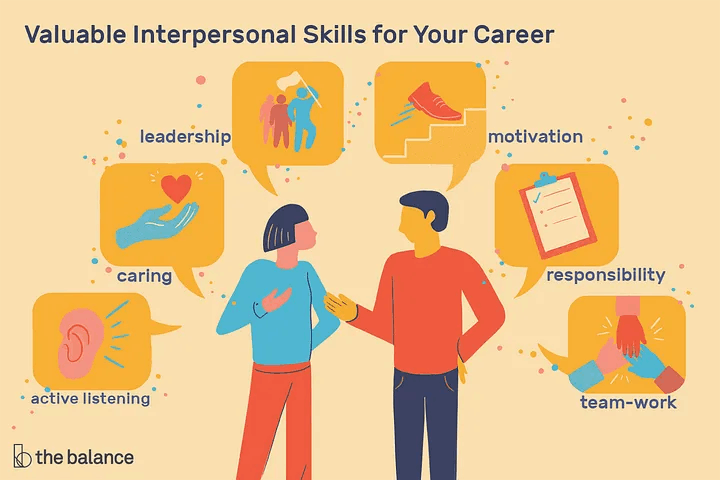Gone are the days when the only expectations from developers were centred around their software development and technical skills. Knowing how to code is NOT going to be enough in the real world. Holl up! Don’t get me wrong, there’s a baseline level of coding you do need to get a developer job, but what else are you good at? What makes a bad developer bad almost has nothing to do with their coding skills but with their soft skills.

Coding is not enough. Improve your soft skills.
What are soft skills?
Soft skills are character traits and interpersonal skills that characterize a person’s relationships with other people. In the workplace, soft skills are considered to be a person’s knowledge and occupational skills. In other words, it’s more about who you are than what you know or how well you can interact with others.

Some soft skills every developer needs in their toolbox
1. Good Communication
Communication is a necessity in any kind of relationship or work environment; everyone needs to be on the same page for the work to get done on time.
Below are ways to communicate better at the workplace
Learn how to raise a red flag: Take, for instance, when you’re working on a project and a red flag comes up that can jeopardise the timeline. Make sure to tell the product manager or Team lead as soon as possible. The sooner you bring up an issue, the sooner everyone can work together to find a solution.
Learn to keep things Simple: Learn how to explain technical terms to people who are not techy, and in doing that, make sure you don’t come off as condescending.
Provide helpful context: learn to include additional information to your reasons that will help it make sense, leading to others buying into your explanation rather than an outright NO.
2. Empathy
While you might spend a lot of time writing codes for machines, you are also interacting with other people. “Putting yourself in other people's shoes” is a way to describe empathy in straightforward terms. Understanding other people, their belief systems and their mental and personal characteristics will benefit you. You will be able to adjust your behaviour, address their needs, and make sure that you’re taking them into account.
3. Open-mindedness and adaptability
Steve Jobs famously said during his Standford commencement address:
"Stay hungry. Stay foolish"
In essence, he encourages you to be open-minded. He is trying to make you receptive to other people’s feedback; don’t be afraid to try and experiment. Being open-minded will make you a better coder. It means you can discover your own weaknesses and tackle them.
4. Critical thinking, creativity, and problem-solving

As a good developer, you will be a critical thinker. One who will challenge himself or herself to solve complex problems. One who will drive himself or herself to creative thinking about unusual approaches.
5. Accountability, humility, and humbleness
To grow and develop as a software developer, you must accept and take ownership of your mistakes. That’s what accountability is all about. But keep in mind that taking responsibility for each mistake, even if you make a lot of them, will not get you far. Mistakes will happen; use that as an opportunity to learn from them and not repeat them again.
Being humble and showing some humility will make you a better developer and a better human. It will allow you to see beyond existing social structures and hierarchies.
6. Patience
Software development is not an easy feat. It is a complex effort that often includes long processes. From the project kick-off through the project execution, testing, deployment, and updates, Most of these activities take a lot of time, even in agile environments.
Patience is especially important when you are starting out as a developer. The most important person you’ll ever have to be patient with is yourself.
7. Management (people, time, and project)

This demonstrates your ability to manage time, people, and projects. Proper time management means punctuality and sticking to deadlines.
- Respecting Your Coworker’s Time: Learn how to ask questions that can get you the answers you seek. At work, you can safely assume that everyone is busy. So, if you have to talk to a coworker about a problem, give them some time to respond. Don’t spam them with a wall of long text that entails your issues rather than a short text that summarises your problem, for example.
You: Hey! I’ve got a quick question (summarise the question). Please reach out as soon as you get this.
The above example seems like a simple gesture, but simply asking if your coworker is busy would help make them feel you understand where they’re at and not come off as entitled.
8. Confidence
Let me guess... You saw this coming, right? Too much of a good thing is harmful. Being too humble or suffering from “imposter syndrome” can hurt you in many ways. The best antidote? Confidence.
Confidence grows when it’s fed with control and competence. Building confidence on a solid foundation takes time. It’s often connected with the number of years of experience you have and your continuous practice. Building confidence also requires a nurturing environment. Someone willing to help, educate, and explain. People who are confident enough can be humble.
9. Approachability and Helpfulness
At some point, someone is going to ask you something. It could be about an issue or bug, or just your plans for the weekend. Being approachable is key. If people don’t feel they can approach you and ask you something when something goes wrong, they’re less likely to ask you for help.
Not being approachable and helpful also means that others are less likely to help you should you need it. That could mean that a little problem soon evolves into a big one.
Conclusion
This list might seem overwhelming. Besides being good at writing code and testing, you now need to be an expert in soft skills.
You are a developer, not a superhero, as you might think. But here’s the thing: you already have most of these skills within you. You might not be aware of some of them. Hopefully, this article helps you uncover some and grow others. Thank you for taking the time to read my article. I hope you gained value.